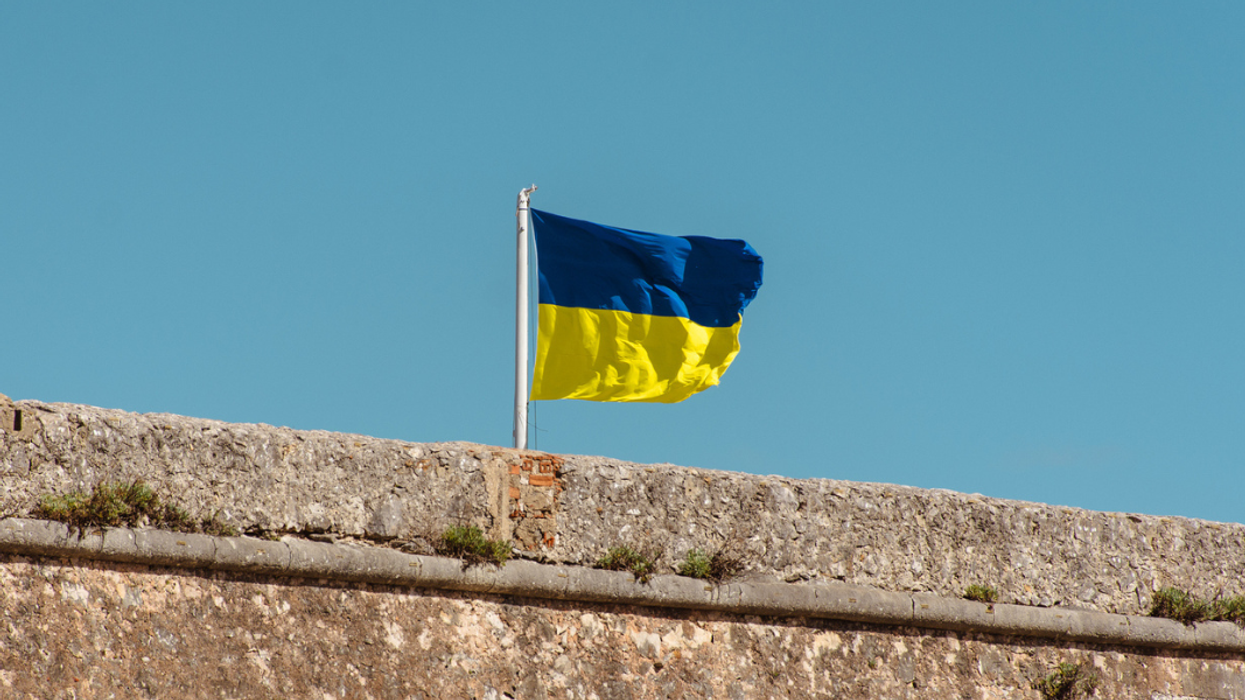Who amongst us is not moved by the courage of the Ukrainian people as they defend their nation from the ruthless Russian onslaught?
My deep empathy and respect was heightened a few days ago when I received a moving email from Vyacheslav Konoval, a Ukrainian poet. Slava (short for Vyacheslav) told me his work “is devoted to the most pressing social problems of our time, such as poverty, ecology, relations between the people and the government.......... and now war.”
In the United States of the 19th century, poetry too played a unique role in our history. It was the American Walt Whitman who believed that the power of poetry and democracy came from an ability to make a unified whole out of dissipated parts.
And so when Slava wrote to me and asked for The Fulcrum to publish a few of his poems I agreed without hesitation, for it is my hope that the imagery of Slava’s words will intimately connect us to the plight of his fellow Ukrainians in a way that other mediums simply cannot do.
Painful condition
Once on Thursday, I woke up weak,
having been covered with a warm quilt,
with a merciless temperature,
I am dying, and I am bleak.
Like a pendulum,
hearing the run of strikes in the clock’s click.
Laying in bed, I had exhausted from the undead,
I am similar to a sickly chick.
Contemplate on the white pills,
that had become the color of capitulation.
Please, God, stop all human ills,
overcome the pains, and be a healthy nation.
Fear of tankers
Sluggish frost on the grass
a crawling caterpillar in the dewdrops,
Serhiy's crew is preparing the papers, a military pass.
Leaving the fore post,
steel power hums on the battlefield,
in the funnels of mortars disappears like a ghost.
A projectile flies, blind,
sows the earth, bang sound, raises the ground,
be careful, defenders, don't lose your mind.
The battery beats
stench and embers crept into the forest,
thank God that the tank has 4 seats.
Enemy tanks hung their noses,
the wind spies on the sounds of the shafts,
our tank is hunt,
we will see, there will be iron roses.
One of our tanks to ten of them,
Is that justice?
The trunks of tanks, the oak stems.
Nightmare of Russians
A green bush crunches,
a rut winding in the field,
the cabin compartment opens,
the machine will fry enemies like delicious lunches.
HIMARS, power even in words,
a storm of night fires,
countries in queues behind the car, buyers.
Six shells fly in a line,
the rocket buzzes sharply,
the night turned into day
in the sky, with tongues of fire, shines.
The occupiers moan and cry,
HIMARS beat equipment and supplies,
nothing more to attack
but You, a Russian soldier, live in a lie.
Bohdana, she is a woman, a defender!
Holy Mother of God,
that gave knowledge with mother’s milk,
to create a wonderful fighting machine,
with a cabin and a crew, their number is odd.
The car has an affectionate name, Bohdana,
as a tribute to the designer’s bride
Bohdana is preparing rockets, is in a hurry,
she confidently leads the gunners as a guide.
Six shots up
kilometers of volleys count in the distance,
the captain looks calmly,
his black coffee is not yet ripe
coffee in a cup.
Bohdana throws shells from a cannon,
like a naughty girl
ready-made artillery stories for the grandson.
Bohdana, the reactive system,
spotted by an enemy howitzer,
the soldiers praise you as the goddess Aphrodite,
I am glad that I became a co-author.
Ukrainian Coolon
Iron needles are falling to the right and to the left,
the master holds the welding machine menacingly,
near his sledgehammer instrument lies, own, without theft,
sad, the equipment of the soldiers is bad, depressing.
Had a business, the master before the war,
boasts an electric car,
grief opened him a new purpose like a front door,
a cut is visible on his hands, and then there is a scar.
A tireless worker gathered a cohort of inventors,
turned workshops and garages into industrial centers,
construction jeeps leave the assembly line,
soldiers say that jeeps are fine.The guys assemble 20 cars in 10 days quickly,
knots, aggregates in machines are prickly,
16 hours per day, garage jeeps assemble,
the thought of volunteering makes my soul tremble.


















 "On the Frontlines of Democracy" by Nonprofit Vote,
"On the Frontlines of Democracy" by Nonprofit Vote,

Trump & Hegseth gave Mark Kelly a huge 2028 gift